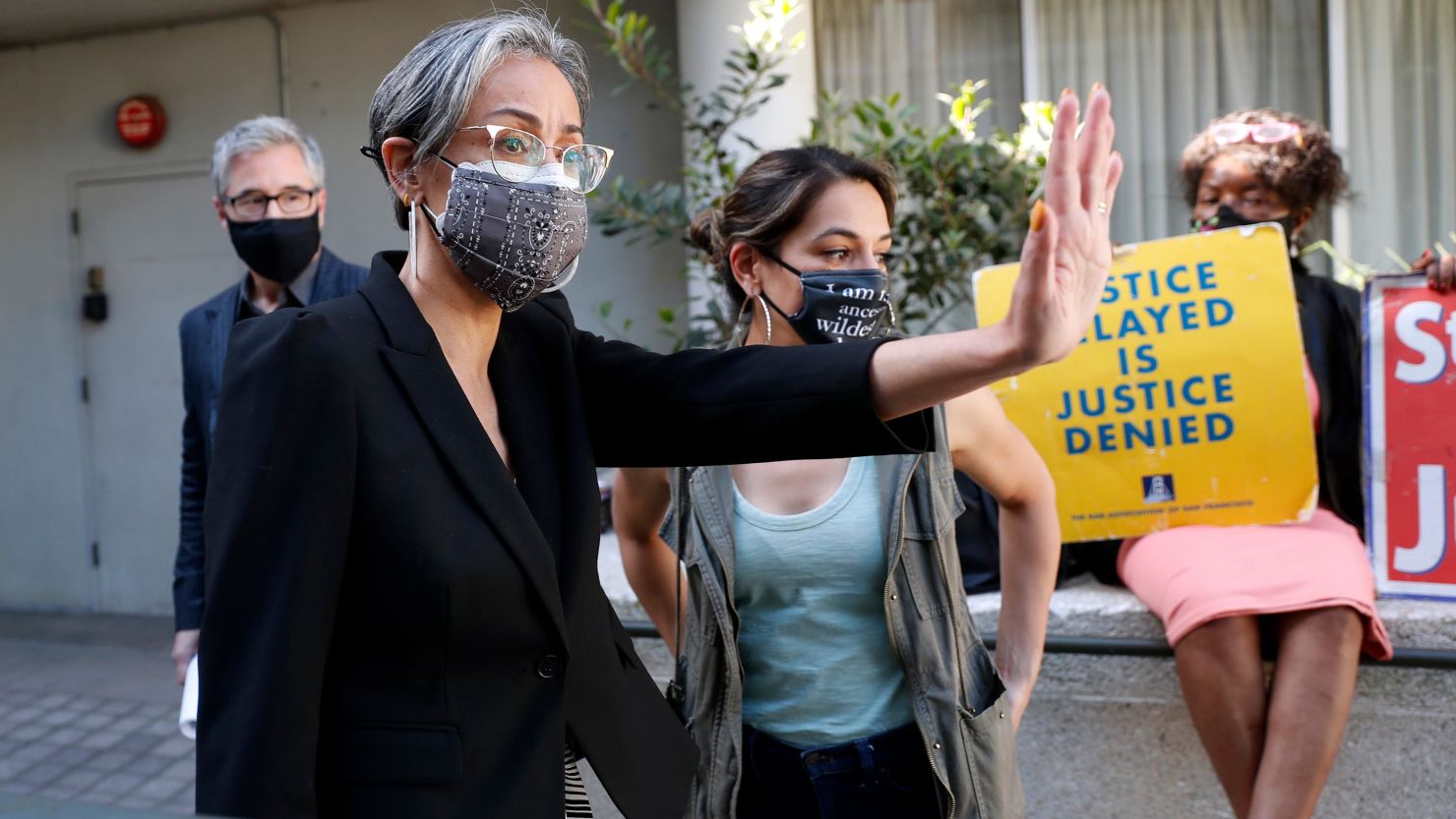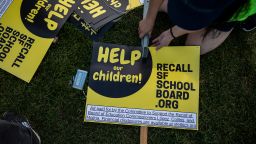A tense campaign to recall three members of the San Francisco School Board will be decided by voters on Tuesday, as a clash between the city’s liberal establishment and movement progressives, over a range of issues, reaches its decisive hour at a moment of wider national turmoil over control of public education.
The seeds of the backlash that led to the recall effort were planted early in the coronavirus pandemic, when the board considered changing the names of as many as 44 public schools in a city that was still grappling with how to safely reopen them. The discussions touched off angry confrontations and pit Mayor London Breed, a Democrat, against some members of the progressive-led board.
And though the conflict in San Francisco is mostly being fought by and among Democrats, conservatives around the country will also be keeping a close eye on the results. Republicans, like new Virginia Gov. Glenn Youngkin and Florida Gov. Ron DeSantis, a potential 2024 presidential candidate, have sought to translate parental frustration over Covid-era mandates into political gain. There is a wider right-wing campaign to sanitize or censor historical readings and teaching in schools across the country.
In San Francisco, school board President Gabriela López, Vice President Faauuga Moliga and Commissioner Alison Collins will be on the recall ballot, which Breed supports.
In her 2021 announcement supporting the recall, Breed said the city was at a “crossroads” and called the board’s priorities “severely misplaced.”
“During such a difficult time, the decisions we make for our children will have long term impacts,” she wrote in a Facebook post. “Which is why it is so important to have leadership that will tackle these challenges head on, and not get distracted by unnecessary influences or political agendas.”
Opponents of the recall have derided it as a power grab by big-money interests seeking to push progressive voices out of local power and pointed to elections, scheduled for just nine months from now, as a fairer way for voters to have their say. (If any board member is recalled, Breed will name their successor.)
San Francisco Berniecrats, a progressive group, has recommended “no” votes on all three recall subjects. On its website, the organization compares the current battle to the ultimately unsuccessful conservative effort to recall California Gov. Gavin Newsom, a Democrat, last year and casts the campaign in broader national overtones.
“These two recalls have one thing in common: they are attempts to short-circuit the democratic process with big money,” the group says. “Across the country, right-wingers are attacking school boards; over half of the signatures to qualify for the ballot were gathered by people paid as much as $22 per signature, many of whom came from out of state.”
Though the recall effort has a number of big-money backers, including Neighbors for a Better San Francisco, a political action committee that is also boosting an effort to recall District Attorney Chesa Boudin, a progressive champion, it also recently secured an endorsement from the San Francisco Chronicle’s editorial board.
In a piece published over the weekend, the Chronicle argued that López, Moliga and Collins “consistently failed to shepherd the district and its students through the gravest of times during the pandemic”– a reference to controversies over reopening schools, an admissions controversy and budget woes – and claimed that board’s cumbersome work to rename dozens of schools “made a mockery of the broader push for historical reckoning in the United States at a time of unprecedented receptivity to change.”
The recall campaign has, according to the Chronicle, collected nearly $2 million, while organized support of the endangered board members, most notably Moliga, has raised only $86,000.
López, who was elected to the board in 2018 and chosen by her colleagues to lead it in 2021, has defended her work to reopen schools and insisted the renaming process never interfered with those efforts.
But some of the school names that once appeared on the chopping block, including Abraham Lincoln and George Washington, raised eyebrows both in the city and around the country. San Francisco-based US Sen. Dianne Feinstein, too, was on the list, in connection with a decision when she was mayor, in 1984, to replace a Confederate flag damaged by protesters outside City Hall. There were also instances in which critics noted that the board had misattributed historical deeds to figures – like Paul Revere, in one instance – which fueled anger over the decision.
Bowing to pressure in April of last year, the board voted unanimously to suspend its plans. The school names all remain in place.


